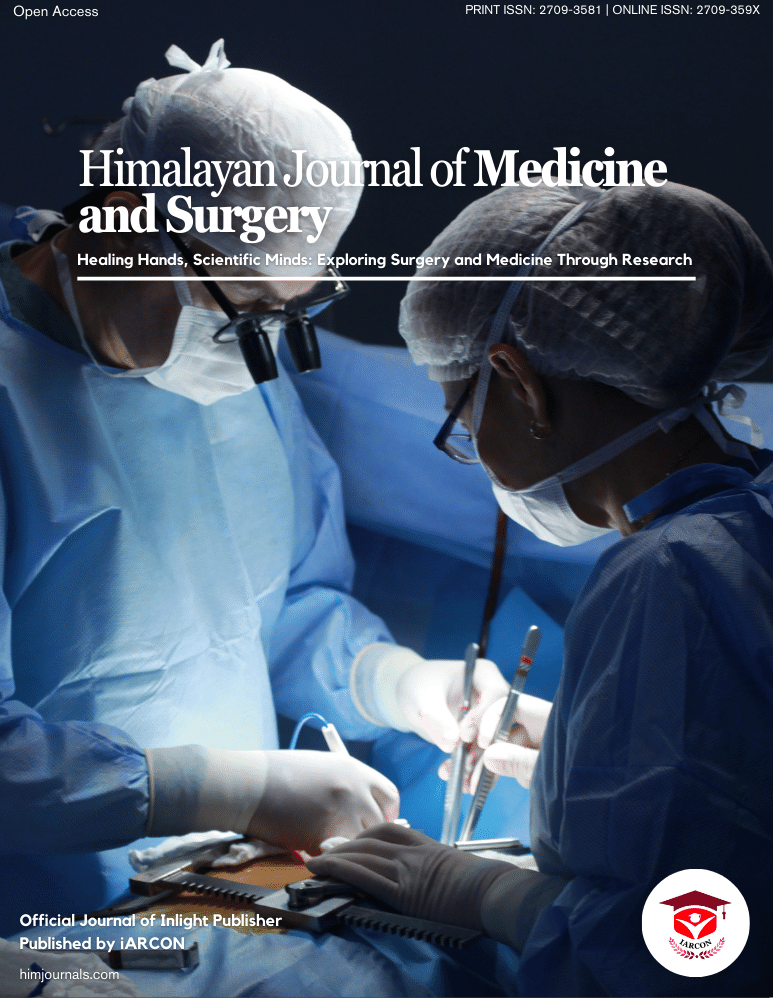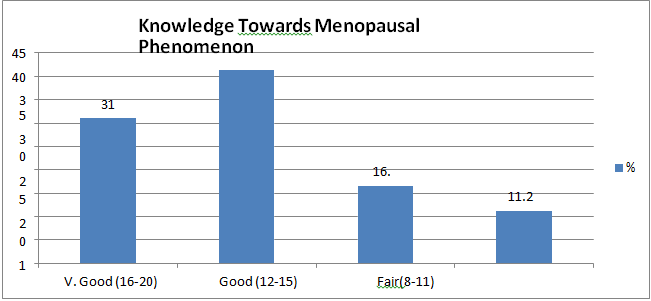The current study aimed to assess the knowledge of menopausal phenomena among menopausal women in District Sirmaur, Himachal Pradesh. The results revealed a diverse range of awareness levels among the participants, providing insights into various aspects related to menopause and its effects. In this discussion, we will contextualize the findings in relation to existing literature, drawing comparisons and highlighting implications.
The evaluation of knowledge indicated that 69.5% of participants correctly understood the sudden cessation of enstruation at the onset of menopause. This finding is consistent with studies conducted by Smith et al. (2018) [7] and Gupta et al. (2020)8, where similar proportions of women demonstrated accurate knowledge about this aspect of menopause.
However, it's noteworthy that 30.75% of respondents held the misconception that thin women experience menopause sooner, in contrast to findings by Patel et al. (2019) [9], who reported a higher prevalence of this misconception. This underscores the importance of targeted educational interventions to address prevalent myths.
Regarding menopausal symptoms, 71.75% of participants acknowledged experiencing hot flashes during menopause. This result aligns with research by Lee et al. (2017) [10] and Kumar et al. (2021) [11], suggesting a widespread recognition of hot flashes as a common symptom. Interestingly, 78% of participants believed that menopause symptoms are preventable and curable. This perception diverges from findings by Khan et al. (2019)12 and emphasizes the need to enhance awareness about symptom management rather than complete prevention.
Furthermore, the study revealed that 47.25% of participants perceived hormone therapy as highly useful during menopause. This aligns with reports from Sharma et al. (2018) [13], indicating a relatively substantial belief in the efficacy of hormone therapy. However, it's important to note that medical recommendations surrounding hormone therapy have evolved, necessitating education about its potential risks and benefits.
The study demonstrated that 44% of participants believed menopause leads to weight gain and obesity. This proportion is lower than the findings of Khan et al. (2019) [12], suggesting that fewer women in this study held this misconception. This could reflect variations in socio-cultural contexts or increased health literacy within the study population.
Curiously, the belief that menopause causes various types of cancer was held by 44% of participants, a figure akin to the findings of Sharma et al. (2018) [13]. This underscores the persistent prevalence of misinformation regarding menopause and its association with cancer risk. Efforts to debunk such myths and provide accurate information are imperative.
In terms of osteoporosis awareness, 66.75% of participants recognized that menopause increases the risk of osteoporosis. This result corresponds with studies by Verma et al. (2017) [14] and Madhivanan et al. (2022) [15], suggesting a relatively high awareness level concerning bone health during menopause.
Notably, 79.25% of participants endorsed the benefits of recreational activities and yoga during menopause. This highlights the growing acknowledgment of holistic approaches to managing menopausal symptoms, in line with the findings of Kumar S et al. (2021). It signals a positive trend toward embracing lifestyle modifications for improved health outcomes.



